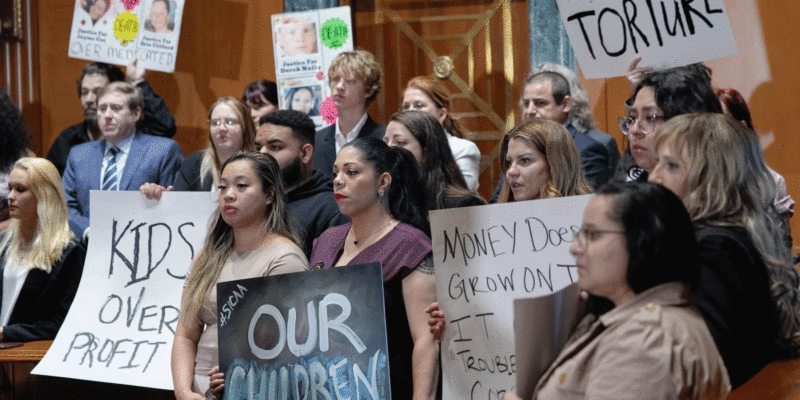
The Senate Finance Committee released on Wednesday the findings of a two-year investigation that revealed widespread abuse and neglect at residential treatment facilities attended by thousands of children each year. The report, which looked at four of the nation’s largest behavioral health providers—Universal Health Services (UHS), Acadia Healthcare, Devereux Advanced Behavioral Health, and Vivant Behavioral Healthcare—detailed a system that “optimizes profit over the wellbeing and safety of children” and incentivizes facilities to “treat children as payouts.”
The companies capitalize on per diem payments from Medicaid and other sources of taxpayer dollars by filling large facilities to capacity with children—many of whom are sent by the child welfare, juvenile justice, and educational systems—while reducing the number and quality of staff, the report found. As a result, children suffer physical, sexual, and emotional abuse at the hands of staff and peers; experience improperly executed uses of physical restraint and seclusion; and receive inadequate behavioral health treatment.
The 136-page report details graphic cases of physical, sexual, and emotional abuse, mostly at facilities owned by UHS and Acadia, both of which are publicly traded companies.
“The experiences and trauma these kids are left with read like something out of a horror novel, and I’ll just mention a few,” said committee chair Sen. Ron Wyden (D-Ore.) in a statement. He continued:
One facility routinely restrained children, drugged them, and placed them in seclusion, in clear violations of federal rules.
Another child ran away from his program in the middle of the night and was fatally struck by a truck. The staff at the facility tried to cover up their neglect and falsified documents about the child’s whereabouts.
Another child was sexually abused by a staffer on an ongoing basis. When the facility caught onto the abuse, instead of firing the staffer, they simply moved them to a different wing of the same facility and each night, the staffer returned to the child’s window to say goodnight.
The report urges the companies to comply with existing federal regulations and calls on states as well as federal agencies, including the Centers for Medicare and Medicaid Services, to increase oversight. Wyden noted that he plans to introduce legislation in the coming months to raise safety standards and increase oversight enforcement, but he stopped short of providing details.
The Senate report builds on a long history of government and media investigations into abuse and neglect at treatment facilities for children. A yearlong Mother Jones investigation into UHS, a Fortune 500 company and the nation’s largest psychiatric hospital chain, found thousands of foster children have been sent to the company’s facilities in recent years, where they typically stay for weeks or months, often leaving far worse off than when they arrived.
As we noted in a summary of our story:
Our investigation tells the story of Katrina Edwards, a former foster child in Alaska who spent more than three years during her adolescence at facilities owned by UHS, including 891 nights at North Star Behavioral Health in Anchorage. Medical and court records show that she was repeatedly physically restrained, forcibly injected with a sedative, held in seclusion, and put on potent psychiatric medications. At times, she stayed at North Star for months after she was ready for discharge, simply because there was no foster home available for her. “They got a lot of money from me,” Edwards says. She’s right: Alaska’s Medicaid program paid more than half a million dollars for Edwards’ care at UHS facilities.
Foster children from 38 states were admitted to the company’s psychiatric facilities more than 36,000 times between 2017 and 2022. Over the same period, 31 states spent more than $600 million on the treatment of foster children at the company’s facilities. As one expert put it, to UHS and its competitors, foster kids are a “gold mine.”
The company’s CEO, Marc Miller, declined an invitation from the Senate committee to testify at a hearing on Wednesday. In a letter obtained by NBC News, the company said it had already provided the committee with 12,000 pages of documents, and it worried that the hearing would present an “incomplete picture of the care and treatment” at the company’s facilities.















